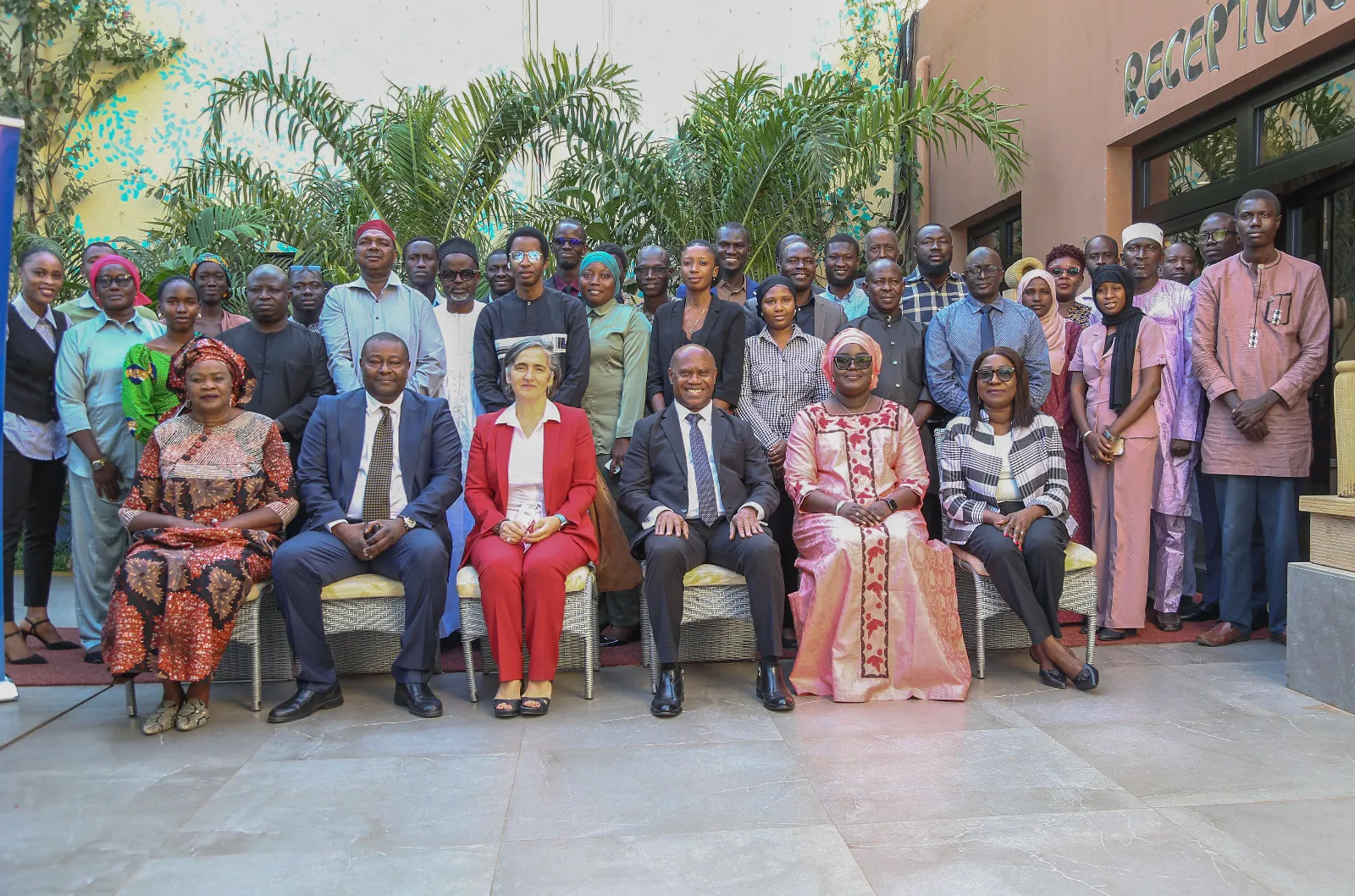Human Rights Consultation: EU and International IDEA

The primary objective of the consultation was to initiate a national dialogue with relevant stakeholders on business and human rights in The Gambia. The forum aimed to popularize the UNGPs, foster dialogue and knowledge sharing among stakeholders, and encourage The Gambia to adopt a National Action Plan and enact relevant legislation to address these critical issues.
The EU Ambassador to the Gambia, H.E. Immaculada Roca i Cortes, emphasized the EU’s solidarity with the Gambia in promoting the UNGPs. She underscored the importance of providing effective remedies when rights are violated and called for a robust framework to address potential challenges arising from business activities.
“There is a need for the state and businesses to respect human rights in order to promote sustainable development,” said Ambassador Cortes.
She reaffirmed the EU’s commitment to supporting The Gambia through technical assistance, capacity building, and shared expertise.“We will continue to work with the National Human Rights Commission, the government, and all stakeholders to translate today’s discussions into tangible outcomes," she concluded.
The Head of the International IDEA Country Office, Ms. Jainaba Faye, emphasized the critical connection between human rights and long-term business success. She noted that companies with strong human rights practices tend to be more resilient, enjoy higher employee satisfaction, and attract socially conscious customers.
“Human rights are the bedrock of a just and equitable society, encompassing fundamental freedoms such as the right to life, liberty, and security, as well as freedom from slavery and torture, the right to work, education, and cultural participation. These rights are not solely the responsibility of governments but extend to the private sector as well,” Ms. Faye stated.
Emmanuel Daniel Joof, Chairperson of the National Human Rights Commission, highlighted the need for a unified and collaborative approach to fostering responsible business practices while safeguarding human rights.
“The Gambia’s business sector, like many others in Africa, has experienced significant growth, contributing to job creation, infrastructure development, and trade. However, this progress has also brought challenges, including exploitative child labor, environmental degradation, and unfair labor practices, which have led to conflicts between communities and businesses,” he explained.
Mr Joof warned that failure to address these issues could undermine human rights, compromise sustainable development, and weaken social cohesion.
He concluded by expressing gratitude to the EU and International IDEA for their continued support through the CODE project, which aims to consolidate democracy and protect human rights in The Gambia. He also reaffirmed the Commission’s commitment to working with the government and stakeholders to ensure the adoption of the country’s first National Action Plan on Business and Human Rights.
The consultation, which included presentations and panel discussions, marks a significant step forward in The Gambia’s efforts to align its business practices with international human rights standards and ensure sustainable and inclusive development.




